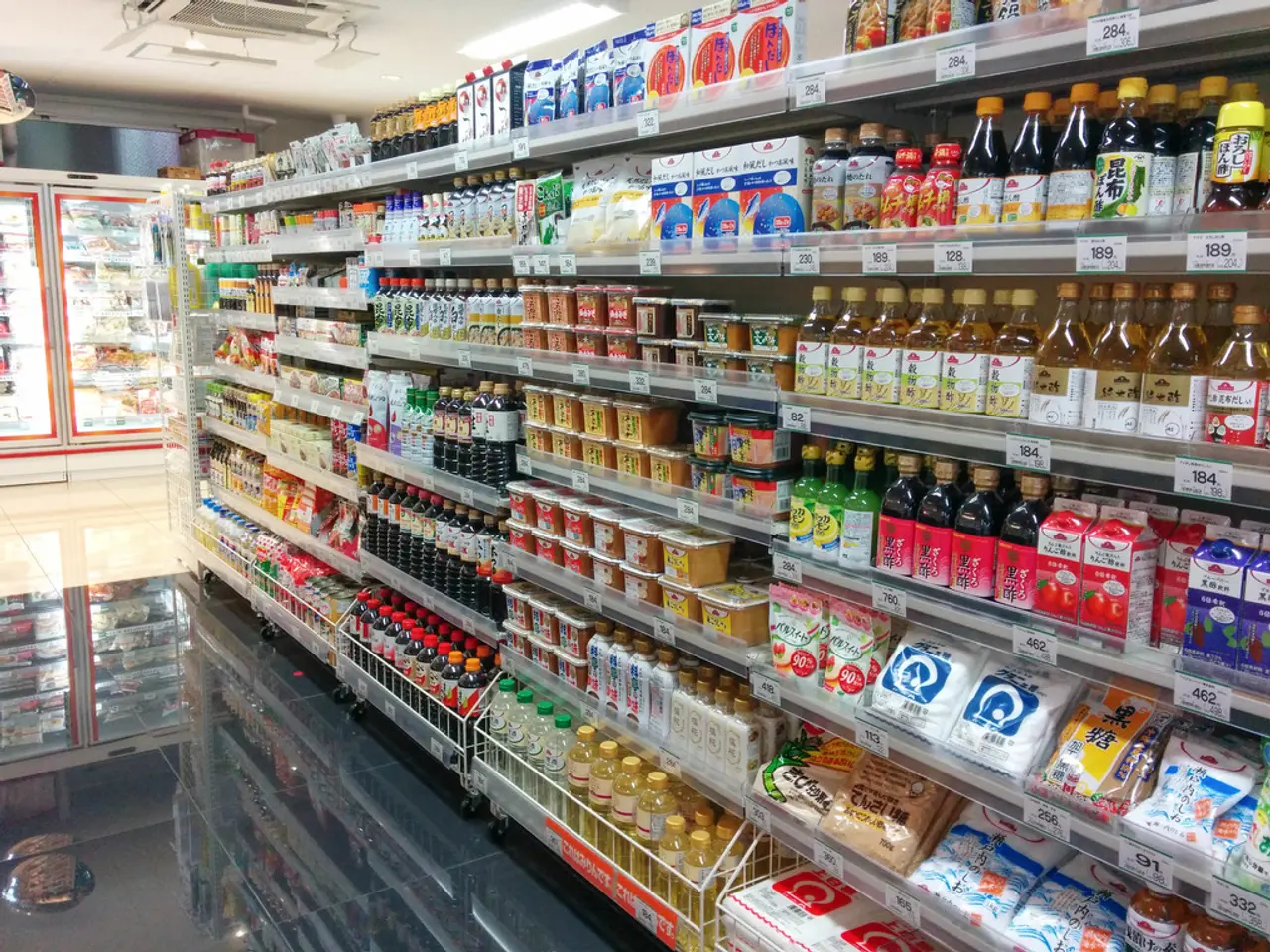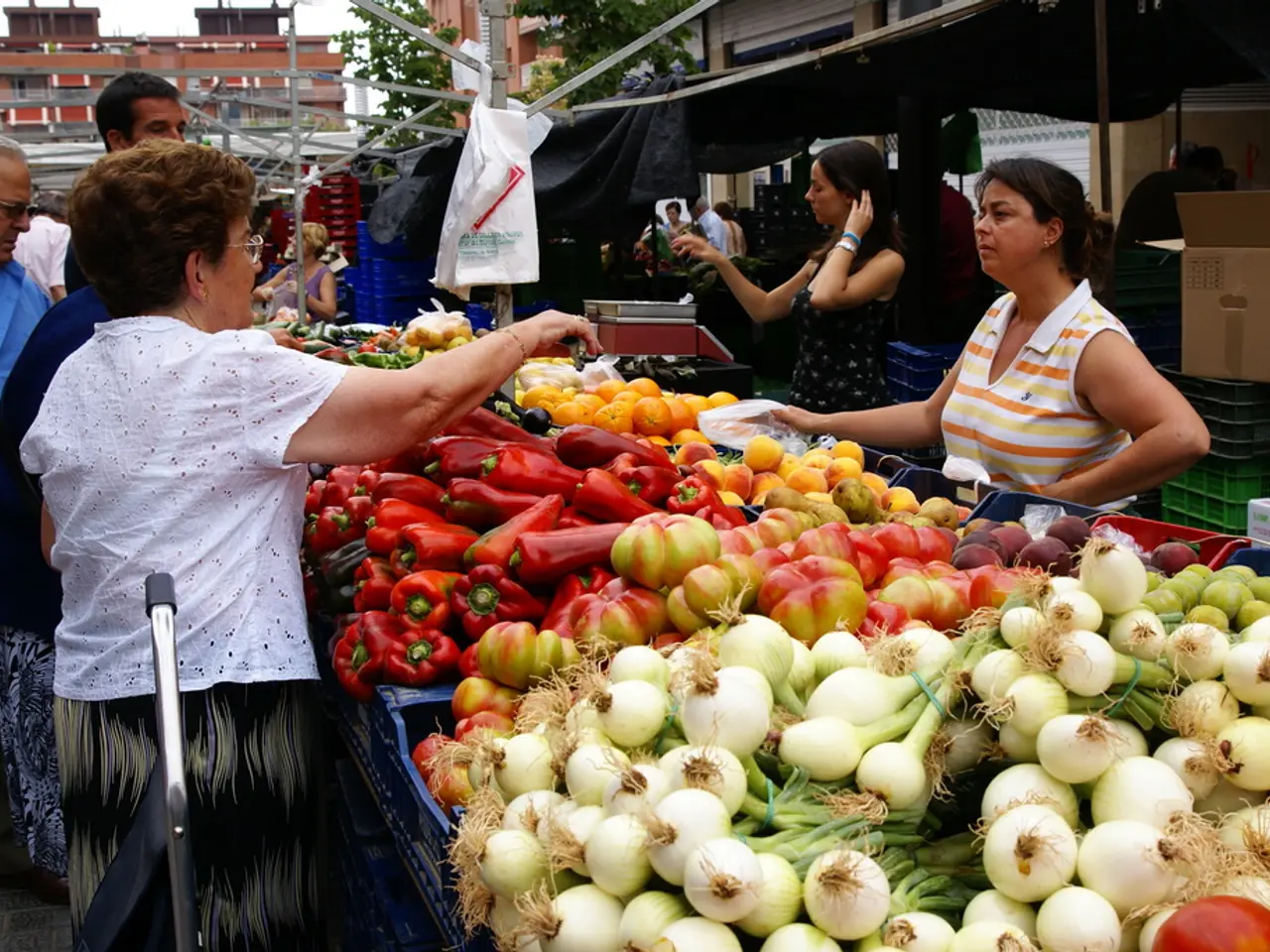Russia, according to an expert at the Presidential Academy in the Urals, has regained its status as a major player in global food exports.
Russia's agricultural sector has experienced remarkable growth over the past decade, with the physical volume of agricultural products exported reaching a record high of 109 million tons in 2021. This significant achievement is largely due to the effectiveness of state support for the sector, as highlighted by Alexander Pobedinin, the head of the economics and management department at the Presidential Academy on the Urals.
Russian Deputy Prime Minister Dmitry Patrushev recently stated that Russia is ready to increase food supplies to the global market. This readiness is reflected in the strategic positioning of Russia to increase its global agricultural export footprint.
Improved harvest outlook and production have played a key role in this growth. Russia's wheat production estimate for 2025-26 has been raised to 83 million tonnes, despite not reaching the record 92 million from 2022-23. The country is also pursuing significant grain production expansion targets, aiming for a 25% increase by 2030 to 170 million tonnes.
Competitive pricing in global markets has also contributed to Russia's success. Russian wheat is priced at approximately $225–$228 per tonne FOB, undercutting competing Eastern European exporters such as Romania and Bulgaria, making Russian wheat more attractive to early-season buyers in global markets.
Adjustments to export duty policies have also boosted export competitiveness. In 2025, Russia slashed wheat export duties by 36% and temporarily eliminated duties for certain grains. These dynamic and frequently adjusted duty policies have influenced global trade flows and created volatility but also encouraged higher Russian grain exports, especially wheat, corn, and barley.
Growth of pork exports has been driven by demand from China and Belarus. Russia's pork exports grew notably, surpassing poultry in export value for the first time in early 2025, with total pork export value expected to exceed $1 billion. China is the primary driver, increasing Russian pork imports over sixfold year-on-year. Additionally, Belarus's reduced pork production has created an import opportunity for Russian pork, further stimulating exports.
Expansion of trade partnerships, especially in Asia, has also been a significant factor. Russia is actively developing agricultural trade relations with countries like Vietnam, benefiting from free trade agreements and logistics cooperation to boost exports of pork, wheat, sunflower oil, and other food products.
These trends collectively reflect Russia’s strategic positioning to increase its global agricultural export footprint through enhanced production, pricing strategy, export duty optimization, and expanded international market access, especially in Asia.
It is important to note that the scale of state support for the Russian agricultural sector is around 0.28% of the country's GDP. Since 2000, the physical volume of agricultural products has grown by 87% and revenue has increased more than 20 times in current prices, demonstrating the effectiveness of this support.
Russia's return as a key food exporter after being a large importer of agricultural products during the late USSR and 90s, and its current status as a key exporter of food, including grain, vegetable oils, and fish, underscores the powerful dynamics of the Russian agricultural sector that are hard to find in the world.
However, the article does not provide any information about the impact of increased food supplies on global food markets or the specific countries or regions that will benefit from these increased food supplies.
[1] Source: USDA, Russian Agricultural Market Report, 2025 [2] Source: Russian Ministry of Agriculture, 2025 Pork Export Report [3] Source: Russian Ministry of Agriculture, 2025 Grain Export Duty Policy Report [4] Source: Russian Ministry of Agriculture, 2025 Asian Trade Partnership Development Report [5] Source: Russian Ministry of Agriculture, 2030 Grain Production Expansion Strategy
- In light of Russia's strategic positioning in the global agricultural market, there is potential for the Russian finance industry to invest heavily in the country's business sector, particularly in the expansion of agricultural production.
- The increased exports of agricultural products from Russia could significantly impact the finance industry, as the revenues generated from these exports could affect the country's economy and possibly influence global finance trends.




